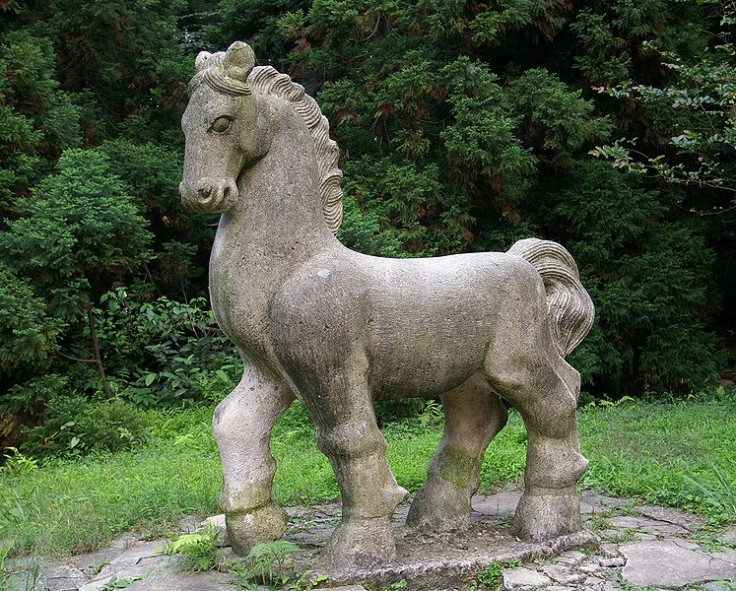China Sees Baby Boom in Year of the Horse

To Noah, they may all have meant the same. But to the Chinese, a sheep is merely a sheep, while a horse is a horse and more.
Sheep are seen as weak and foolish, and hence those born in the Year of the Sheep that starts on 19 February, 2015 are doomed to be meek followers, rather than noble leaders, symbolised by the horse. The present year is ruled by the horse.
The fear of giving birth in the Year of the Sheep has led to long-winding queues at hospitals with future parents registering for a place for their babies this year.
"My parents-in-law didn't explicitly say that they didn't want a grandson or granddaughter born in the Year of the Sheep, but they dropped plenty of hints," said Guo Dongdong, five months pregnant. "The saying in our hometown is that girls born in that year turn their families poor."
Guo, nearly 30, works at a cultural company in Beijing and seems an unlikely figure to be influenced by superstitions. But, like tens of thousands of other expectant mothers across China, she too is keen to have a child in the present Year of the Horse.
Religious belief and superstition still have strong impacts on cultures and communities in these parts of the globe.
Although the sheep symbolises caring and compassion, parents do not wish their child be born under the sheep as they will prove too weak for a cruel, unforgiving world. Children born in the Year of the Sheep are believed to exhibit self-esteem issues, dependency, oversensitivity and they're seen as unlucky.
Qilu Evening News reported that a 23-year-old woman surnamed Huang in Heze, Shandong Province was being forced by her mother-in-law to have children this year. She had only been married for a month.
Previously, 2012's Year of the Dragon saw another small boom, with statistics from the Beijing Health Bureau showing a five-year peak and Shanghai reporting about 5,000 extra births.
But the combination of the Horse and the looming threat of the Sheep seems to have sent Beijing's mothers into a panic.
The registry at the Beijing Hospital begins at 7:30 in the morning, but Guo's husband usually leaves home at 5:30 or even earlier to stand in the queue. These monthly antenatal examinations don't begin until the 12th week of pregnancy, but this year in Beijing the struggle to find a place to give birth has meant early registrations.
Guo is lucky compared to a large number of pregnant women, who are still struggling to establish files in the public hospitals in order to give birth there.
In the case of specialist hospitals, like Beijing Obstetrics and Gynecology Hospital and Peking Union Medical College Hospital, the women now have to get their files in before the first month of pregnancy is over.
If the baby boom is coming, nannies can't be far behind. According to the figure from bj.95081.com, the Beijing housekeeping service platform, this November see a peak for the employment of nannies with their wages reaching over 10,000 yuan ($1,611, £943) per month.
Early this year, the Beijing government loosened up the One-Child Policy, declaring that if just one of the two parents is a single child themselves, the couple can have two children. According to figures provided by the National Health and Family Planning Commission, from November last year to 30 May this year, 271,600 couples have applied to have a second child and 241,300 of them have received permission. The rush for the year has picked up.
© Copyright IBTimes 2025. All rights reserved.





















